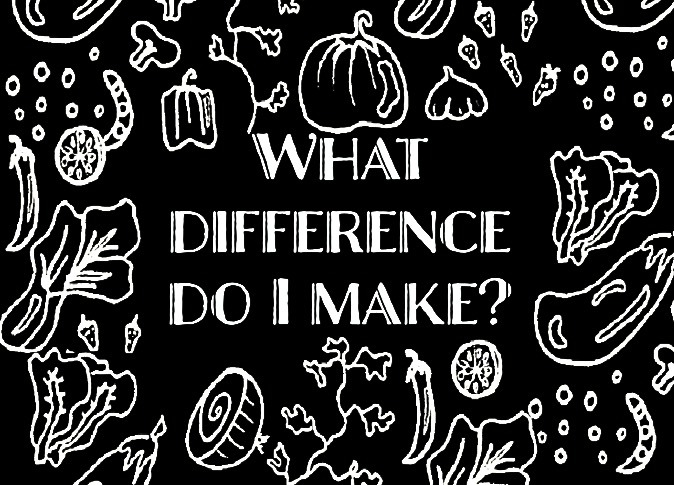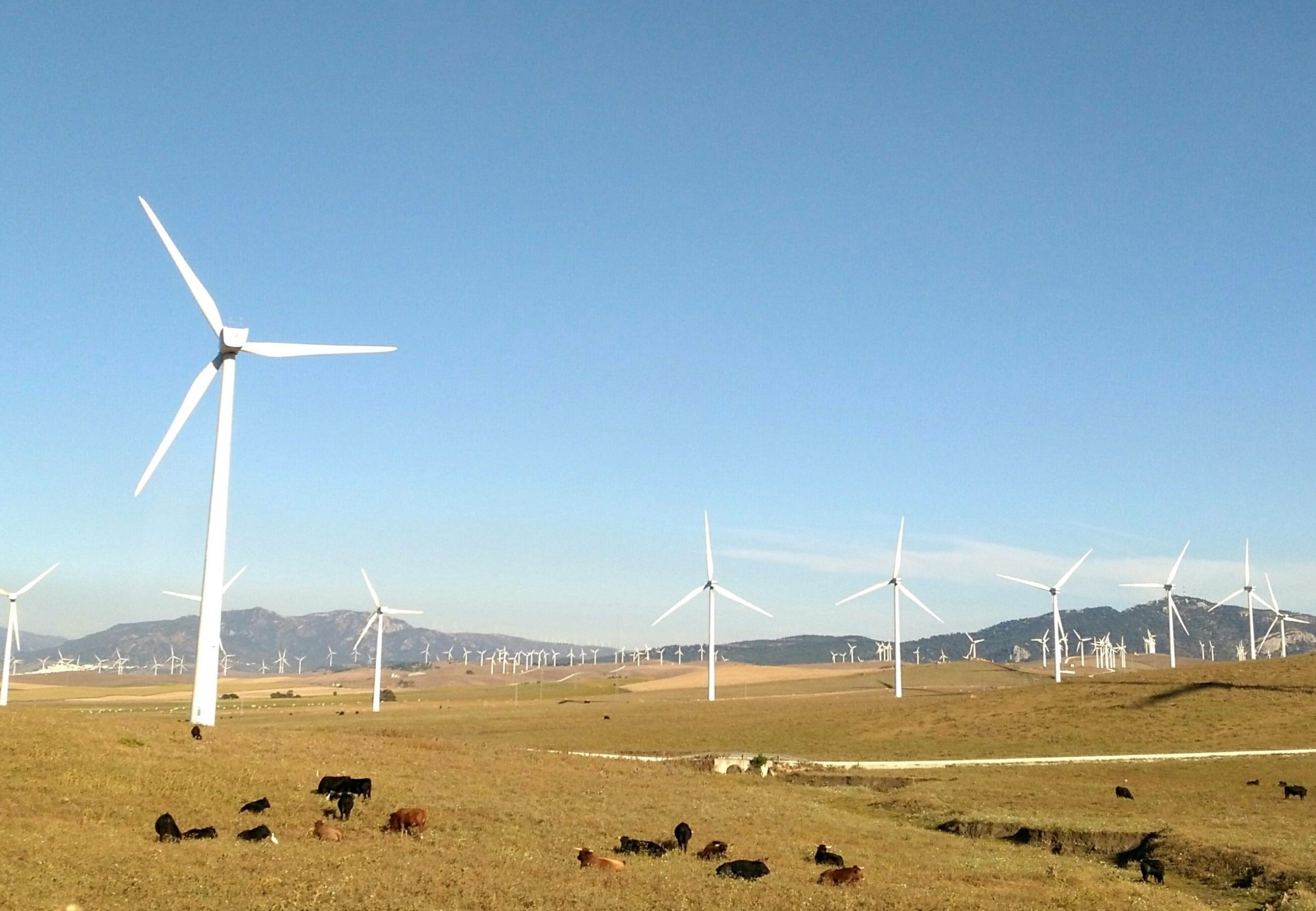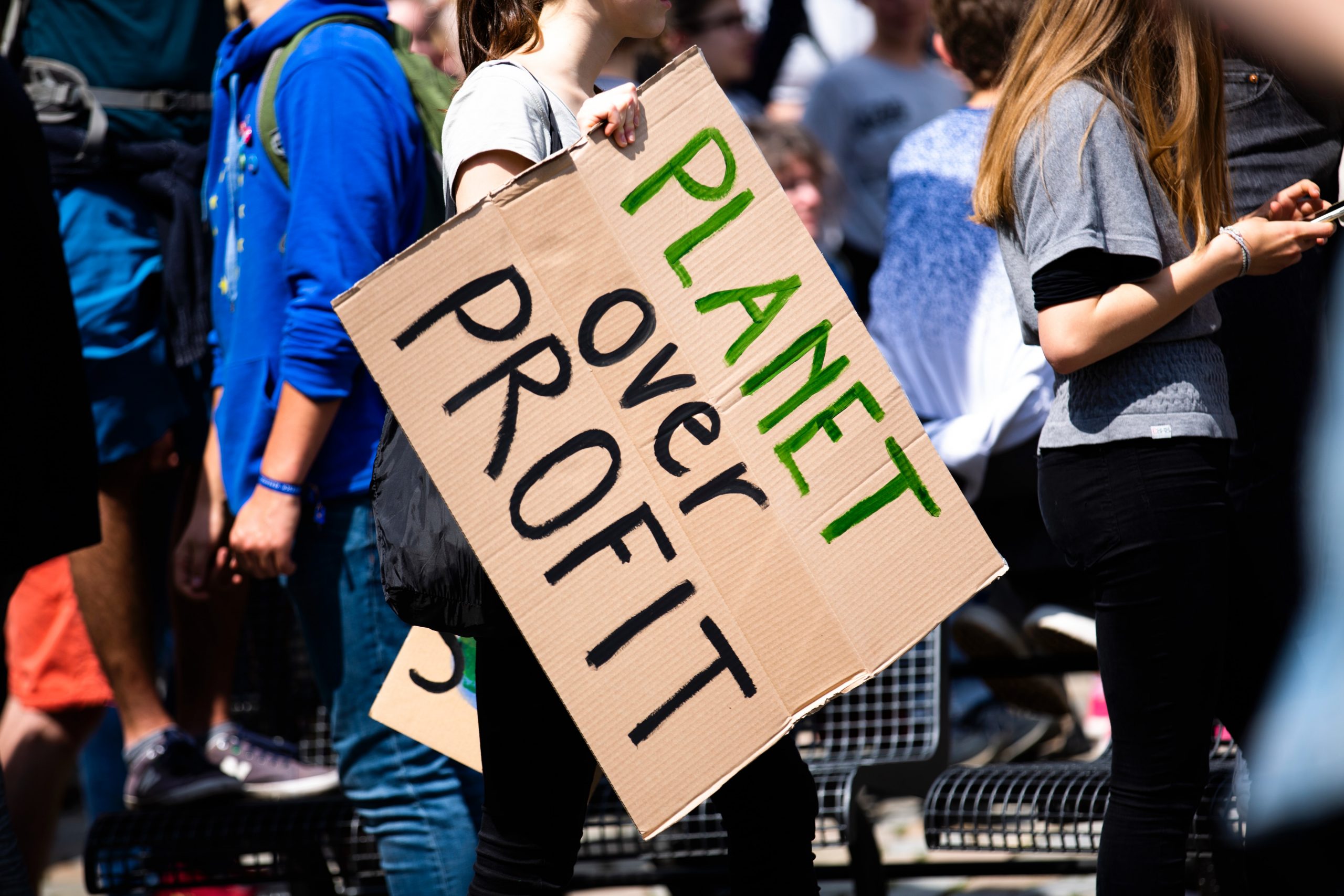Our planet or theirs?
How impactful is personal environmental responsibility?
By Lily Owen / 10 January 2020

Illustration by Thea Elmsley
Responsibility is a daunting prospect. To look after someone, to look after yourself, finances, work, education and when it comes to the planet and its future, that is seriously big.
To think that we have a duty of care to protect and improve our environment can feel like a burden, especially for younger generations who have been born into a world already out of balance. It is a human mantra that bigger is better, more is more, but the more our population grows, the more innovations and technology that require energy and resources, we are falling out of balance with nature.
What can I do about it? Individuals are one person, their actions are singular and our planet homes 7.8 billion of them (and counting). Countries, unions, governments, and corporations are made up of many people, and much more powerful ones with money. It has become an ‘us and them’ scenario: don’t blame individuals for their consumption patterns, blame businesses for their unsustainable means of production. When just 100 companies are found responsible for 71% of global emissions since 1988 and a mere 25 corporations responsible for over half of global industrial emissions over the same period, what difference do I make?
As a population experiencing global heating and climate change, we are encouraged to make lifestyle changes in the pursuit of slowing, even reversing the polluting of our atmosphere. We can recycle, reduce waste with reusable bags, water bottles, coffee cups; cut energy consumption by unplugging appliances and turning lights off; buy second hand and try to walk, cycle, or use public transport where possible. More extreme measures could be having less, or no children at all to stunt population growth, or going vegan to reduce energy consumption and carbon emissions. Nonetheless, these are very personal choices and require a delicateness if anyone is to try and promote a collective approach or at least explain their reasoning.
A professor at Carnegie Mellon University complained how “The ‘don’t have kids because of climate’ argument is bunk, and absolves the choices of companies and policymakers.” Anti-fracking activist, Sandra Steingraber also wrote, “Stop policing women’s fertility. The fossil fuel industry along with the banks and political leaders who keep the fossil fuel party going is the cause of the problem.” Both are correct. I, a single individual, and yourself have nowhere near as much power and impact as the actual policymakers and these are big sacrifices to make. Boris Johnson and Joe Biden miraculously diverting all of their nations’ investments in fossil fuels towards renewable energy and wind farms would be far more appropriate – and I’m almost certain that the change would be on a far larger scale than that of me taking my reusable coffee cup to work every morning. But we have to be careful not to diminish individual responsibility to such an extent that people’s actions are deemed futile.

Photo by JOHANNA MONTOYA on Unsplash
Environmental responsibility will be most significant when we see the efficacy of our behaviours, proving their valuable contribution to protecting our planet.
This is not something we can see day-to-day. What we do see is Australian bushland and the Amazon Rainforest ablaze, icebergs melting in Antarctica, and the worst offenders – Amraco, Chevron, BP and Shell – professing support for climate action whilst contributing to its increased decline. As a result, there is the danger that we succumb to an overwhelming pessimism. If the world has to wait for its biggest polluters to turn their capitalist greed into moralistic and selfless consideration, time will simply run out. The thing is, when you recycle or take a train over a flight, you might not be saving the world, but you are making a statement: you are taking control. The efficacy of our behaviours can be measured in environmental progress, but also a deepened commitment to sustainability. Individuals can become a living example of what everyone could be, and if this catches on, others may make similar responsible choices to such a scale that we might even influence policy change. Personal and collective action are not independent of one another.
Each action may be insufficient to make a physical difference and fall short of the effects that can be had by mass movements, but we have to start somewhere. To compare personal and political action isn’t always helpful: both are required. It is forgotten that it takes individuals to galvanise the masses. Take environmental activist, Greta Thunberg; she has captured global attention in challenging political leaders to take action against climate change. She is an individual, a vegan, and encouraged her family to lower their carbon footprint by upcycling and giving up flying. Whilst holding corporations to account, she does not deny the effort she can make herself. How can a person, activist, or charity lobby for widespread change if they cannot demonstrate their willingness?
It does not have to be either-or: individual behaviour doesn’t absorb the blame assigned to government inaction, but neither can it claim to have no impact. You can see the argument against individual responsibility creep in to counter the productivity of veganism in smear campaigns and fake news. Soya is a key component to both meat and dairy substitute products and carries a high protein content to sustain a vegan diet. Yet, criticism has been raised to note how soybean farming has contributed to deforestation and thus is no more environmentally friendly. In fact, 75-80% of the world’s soybean crop is for farmed animals, with only 6% being grown for humans. Any negative impacts of soybean farming, when traced back to the source, is just another impact of animal farming.

Photo by Markus Spiske on Unsplash
When faced with misleading arguments such as this one, it is no wonder that veganism does not carry a great appeal to most. Why give up some of your favourite foods if not that much goodwill even come from it?
But researchers at the University of Oxford have found that cutting meat and dairy products from your diet could reduce an individual’s carbon footprint from food by up to 73%. If everyone made this change, then global farmland could be reduced by 75% - an area equivalent to the size of the US, China, Australia, and the EU combined. Such land could then be freed up to recover natural ecosystems, replant trees to absorb the excessive levels of carbon from our atmosphere, and restore several habitats that have been lost and contributed to wildlife extinction. The same study demonstrates how meat and dairy production is responsible for 60% of agriculture’s greenhouse gas emissions, with the products only providing 18% of calories and 37% of protein levels. Large carnivores in nature are rare because of the sheer volume of prey required to support each individual. Humans being at the top of the food chain and with an ever-increasing population to provide for makes this support massively unsustainable.
For many cultures, eating meat is ritualistic and celebratory; for many low-income families, fast food options are simply more affordable and less time-consuming. Going fully sustainable in today’s economy and climate can become a question of privilege. As a record 500,000 people commit to going vegan this January, it is no shame if that is too big of an adjustment for you. Vegetarianism, pescetarianism, even ‘flexitarianism’ (only occasionally eating meat or fish) is still a commendable effort. Oxford University scientist, Joseph Poore even claims that if every family in the UK swapped a red meat meal to a plant-based meal just once a week, the impact would be equivalent to taking 16 million cars off the road. 14% of Brits identify as a flexitarian, twice as many as those that are vegan, vegetarian, or pescetarian. It is a much smaller step than veganism and, perhaps, therefore, more sustainable long-term for a majority of people – small, but something.
A return to our planet’s natural balance and achievement of environmental sustainability does not wait for the compliance and improvement of each individual’s behaviour. But the more people that change their behaviour, thereby staying informed and willingly responsible, the more pressure there will be to keep politicians and corporations in check. I’ll do my bit, you do yours, and hopefully, they’ll do theirs.
Art by
Words by
Share this article

